How Social and Emotional Development Is Reflected in Art
What Are Social-Emotional Skills?
Social-emotional skills are essential for connecting with others! They help us manage our emotions, build good for you relationships, and feel empathy.
Some examples of social-emotional skills in use are:
- Recognizing if someone is distressing, and asking if they're ok
- Expressing yourself with your friends in a dissimilar mode than with your parents
- Understanding your thoughts and feelings, and beingness able to chronicle to others
While these skills may sound complex, social and emotional development begins at a very young historic period.
Social-Emotional Skills: Know the Basics
When does social and emotional evolution begin?
Babies starting time learning these skills from nascence! As presently as they begin interacting with the people who care for them, they brainstorm to develop an understanding of feelings.
How exercise parents impact social-emotional development?
Parents aid to nurture social-emotional skills so kids develop salubrious relationships with friends and family members. Even as a baby, your little one is picking upwards on how you lot reply to their social and emotional needs. They feel safe at home and in your presence. They learn how to empathize, reply to the emotions of others, and say "I'1000 sorry" past post-obit your lead.
What exercise social-emotional skills help kids do?
Kids with salubrious social-emotional skills are more likely succeed in schoolhouse, work, and life. Social-emotional skills help kids:
- Make friends and keep friendships
- Gain confidence
- Resolve conflicts
- Manage stress and anxiety
- Acquire social norms
- Make appropriate decisions
- Resist negative social pressure level
- Larn strengths and weaknesses
- Gain awareness of what others are feeling
How long does it take to develop social-emotional skills?
Social-emotional growth takes time. Early experiences with family, caregivers, and peers greatly touch on social and emotional development, simply throughout our lives we volition keep to exist shaped by our experiences! These experiences can include meeting new people, overcoming difficult situations, or even raising children.
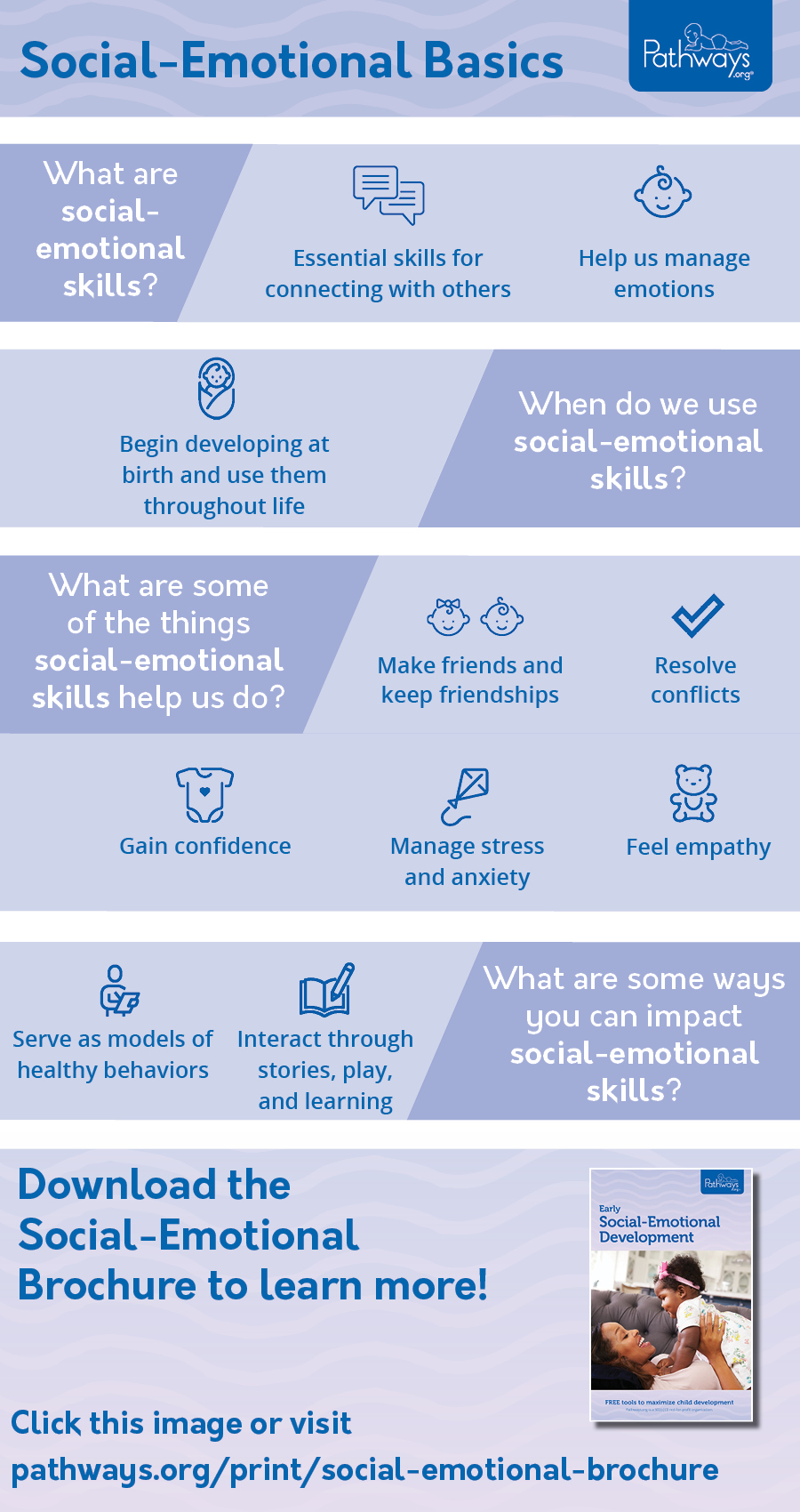
Social-Emotional Abilities
Is your child coming together their social-emotional abilities?
Be on the watch for these abilities as your child grows. They are encouraging signs that your kid is making progress in their social and emotional development.
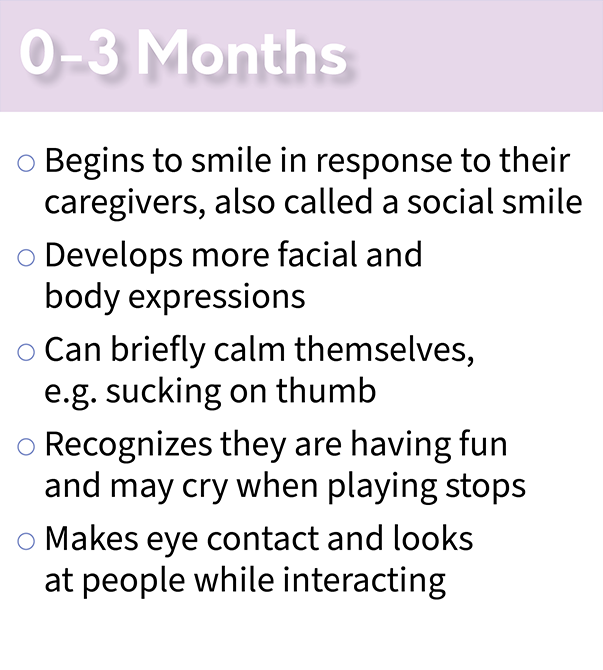
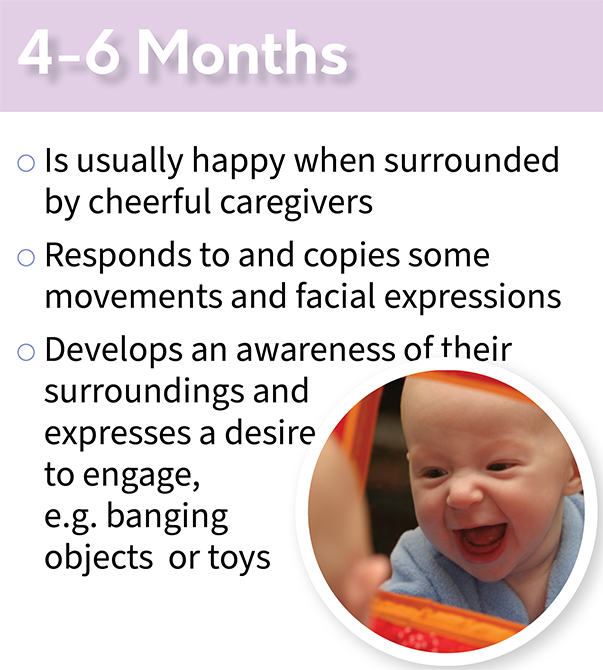
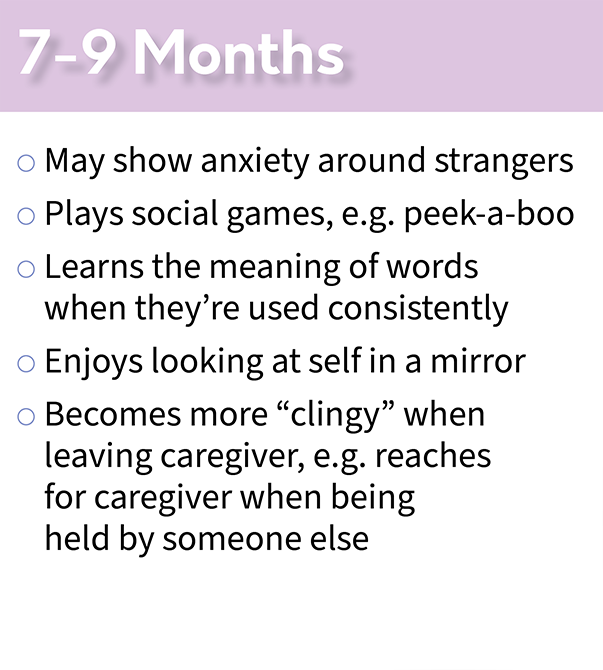
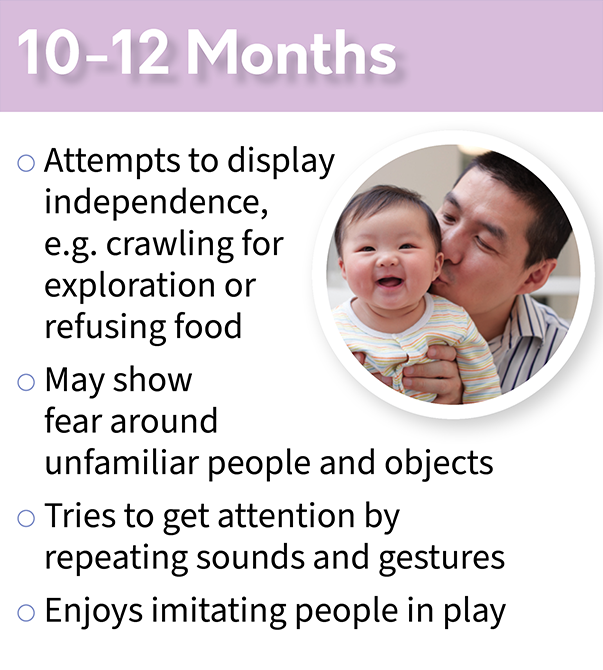
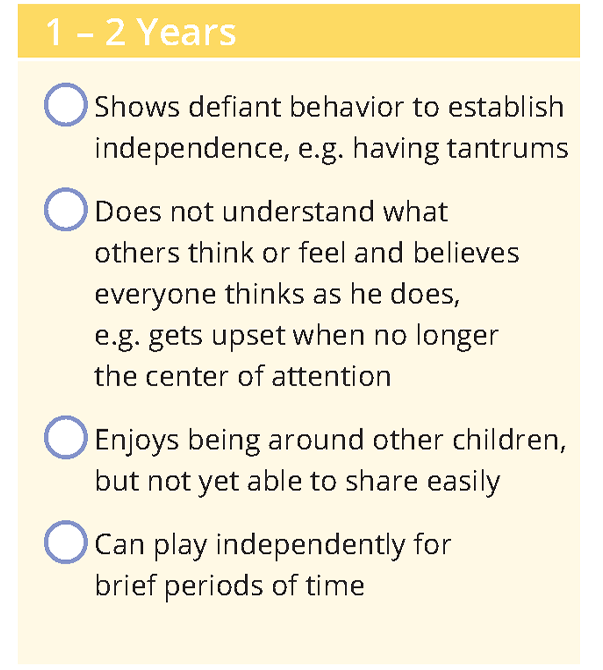
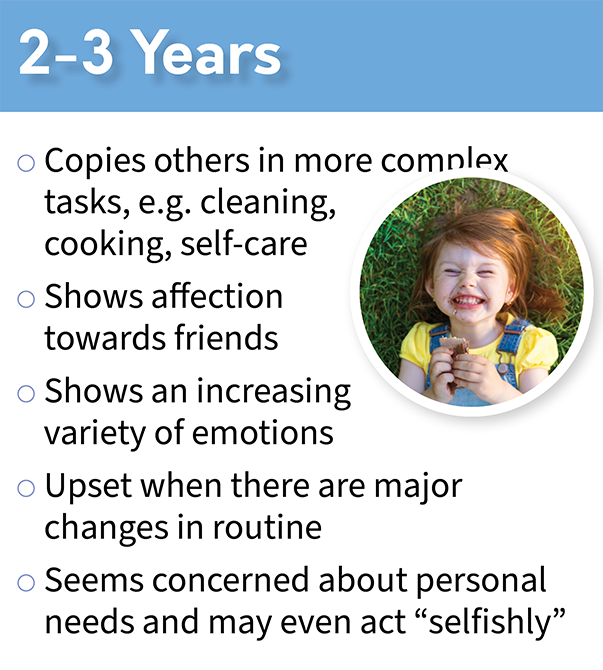
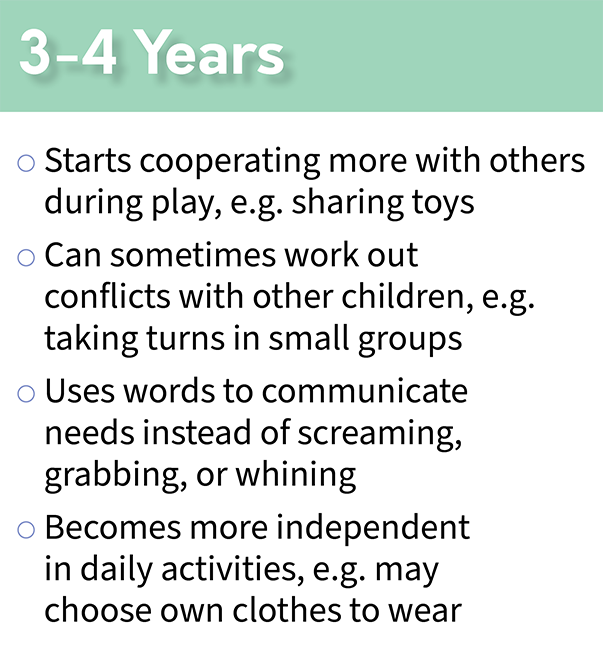
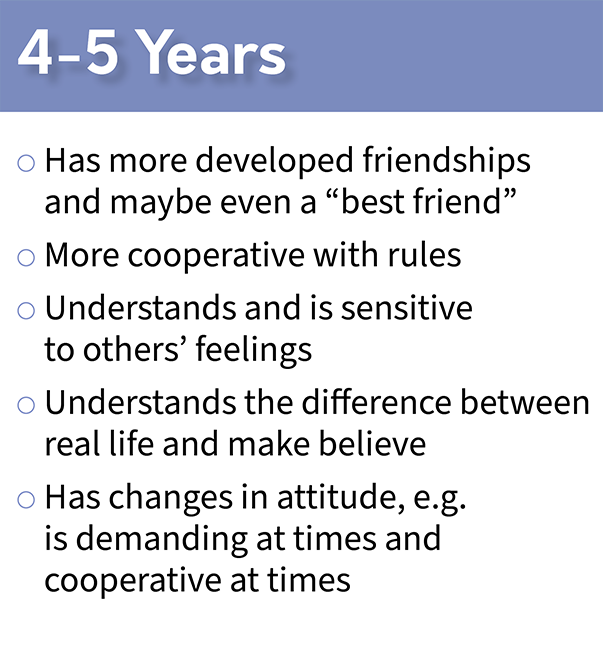
Developing social-emotional skills can boost your child's confidence and help them succeed in school, piece of work, and life.
Missing one or 2 abilities should not cause alarm, equally every child develops differently. Withal, if they are missing multiple abilities, be sure to talk with your healthcare provider.
Social-Emotional Tips
What you tin practice to help your child'south social-emotional development
- Be a model of the emotions and behaviors yous want your child to show. You are your child's kickoff teacher and they look upwards to you as a role model.
- Exist responsive to your child'south emotions and behaviors. Responding will assist to develop trust between you lot and your child.
- Ask open-concluded questions, such as "What would y'all do?" to help develop problem-solving skills.
- Use stories to talk to your kid near different social situations and how each person might be feeling.
- Encourage kids to effort new things and larn how much they tin can practise.
- Play games to teach kids how to have turns, win and lose, share, and negotiate. Enquire yourself these questions when choosing a game for family unit game dark.
- Enquire your child questions when they are upset. These questions can be nigh why they are upset, or offer alternatives to understand the root of their unhappiness. For instance, "Would you like to brush your teeth or take a bathroom get-go?"
- Sit with your child when using a screen (not recommended before 18 months) and make information technology a social activeness, e.g. asking them questions or playing plow-taking games.
Social-Emotional Activities
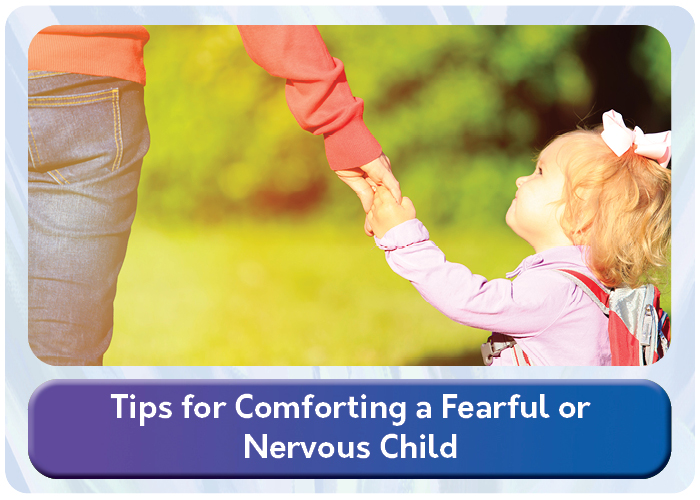
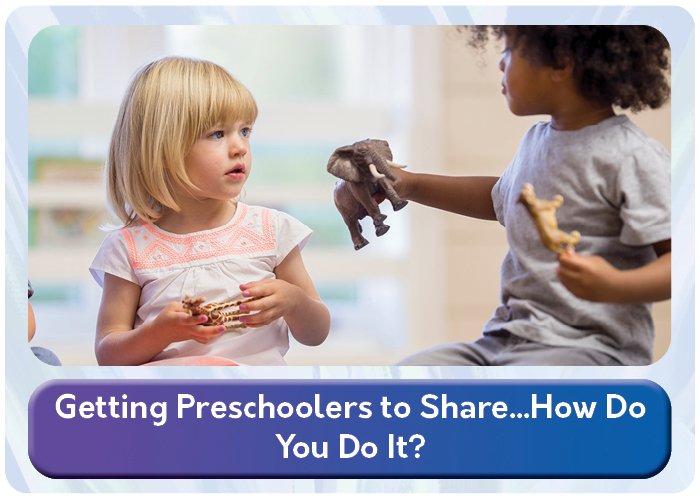
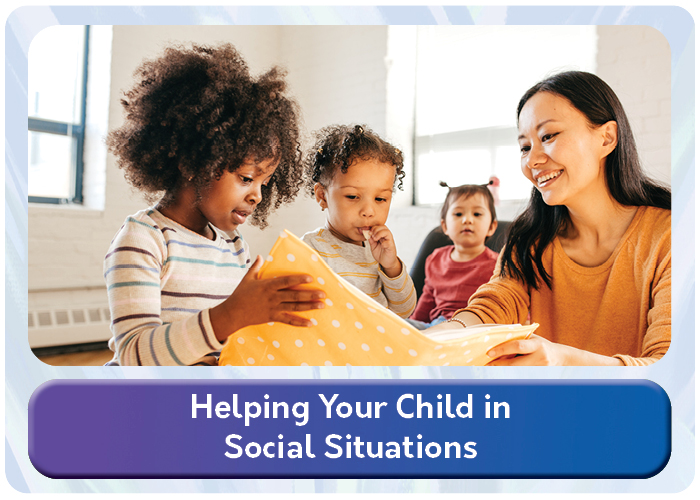



What to Sentinel For
How to address social-emotional issues and delays
The sooner your child receives help in developing their social-emotional skills, the better off their health and well-being will be. Your healthcare provider may be able to help you address the issue or refer you someone who can help. Here are a few examples of specialists who may be able to assistance your kid:
-
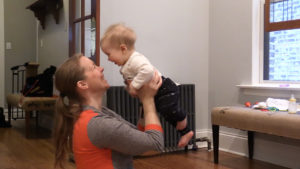 Child psychologist
Child psychologist - Social worker
- Neuropsychologist
- Psychiatrist
- Occupational therapist
- Speech-language pathologist
- Developmental and behavioral pediatrician
Visit Understood.org or Child Mind Found for more than information and resources on social-emotional development.
Source: https://pathways.org/topics-of-development/social-emotional/
0 Response to "How Social and Emotional Development Is Reflected in Art"
Post a Comment